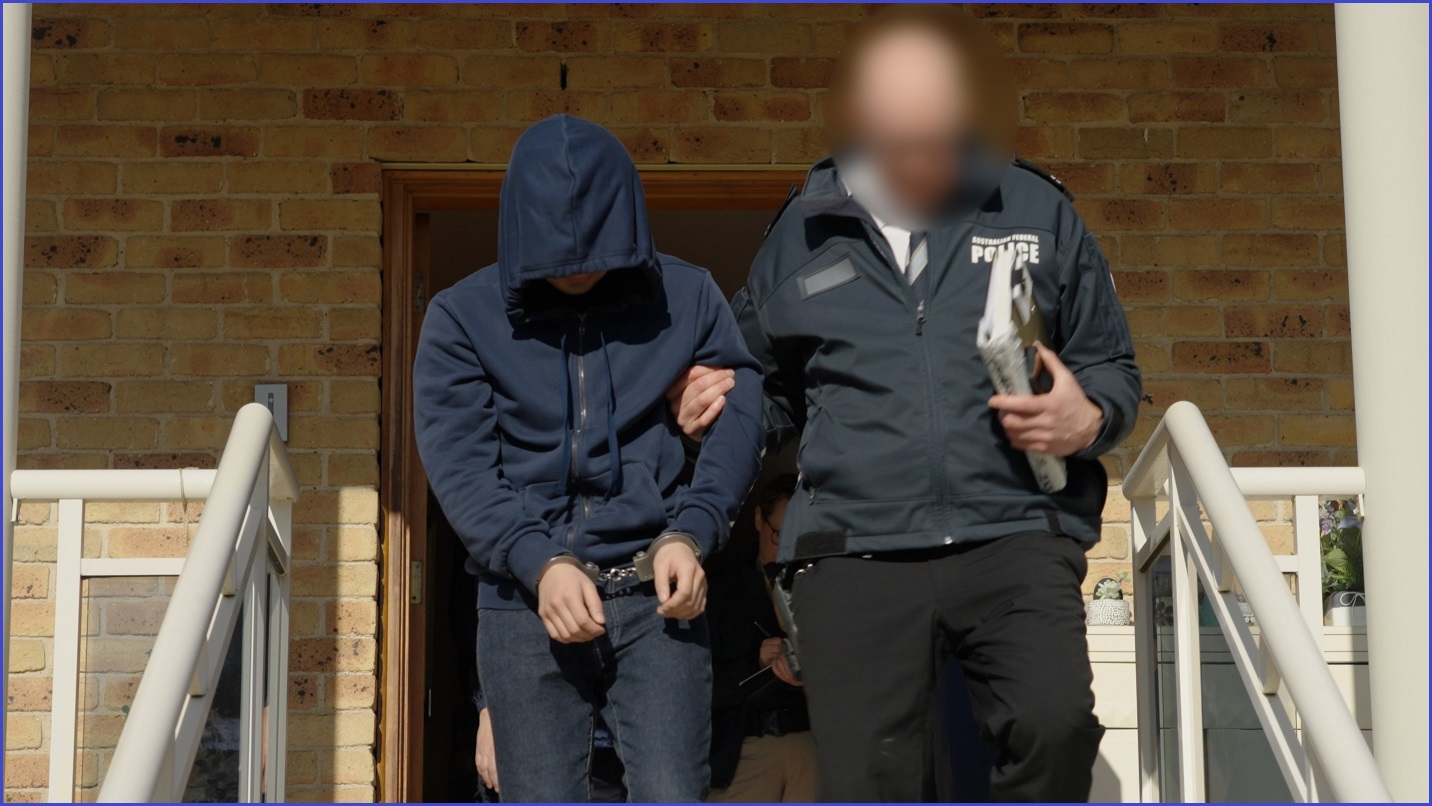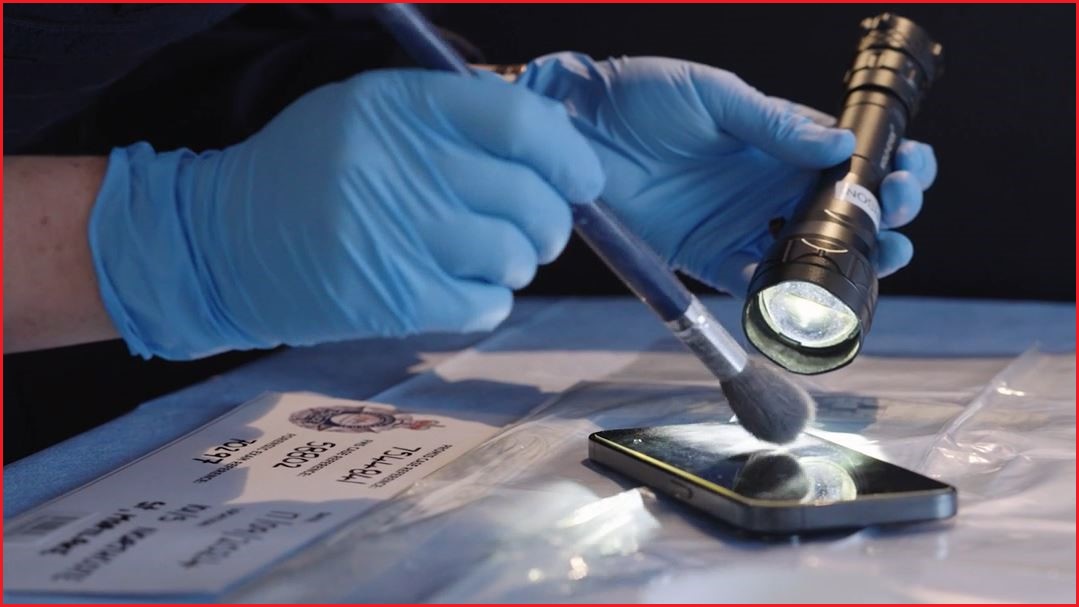A Sydney man has been arrested and charged as the alleged head of a global organised crime app, as police continue to make Australian arrests into the week.
The 32-year-old man, Jay Je Yoon Jung, was arrested at his home in Narwee on Tuesday as part of a global takedown effort against encrypted communications network ‘Ghost’.
The Australian Federal Police describes Ghost as a platform “built solely for the criminal underworld” – and has accused users of the app of participating in such crimes as drug-trafficking through to threats of serious violence.
After reportedly decrypting and reading messages from Ghost, police have charged the alleged NSW kingpin for creating and administering the global app.
“It is the first time an Australian-based person is accused of being an alleged mastermind and administrator of a global criminal platform,” said the AFP.
The AFP further “restrained” various cryptocurrencies and bank accounts related to Ghost, before alleging the man used a “network of resellers” to distribute specialised handsets to criminals across the globe.
These handsets – effectively modified smart phones – were sold for approximately $2,350 apiece and included a six-month, software-as-a-service type subscription to the encrypted communications app, which even came bundled with tech support.
As of Tuesday, the AFP will allege there were 376 active handsets in Australia.
“We allege hundreds of criminals, including Italian Organised Crime, outlaw motorcycle gang members, Middle Eastern Organised Crime and Korean Organised Crime have used Ghost in Australia and overseas to import illicit drugs and order killings,” said AFP deputy commissioner Ian McCartney.
“Taking down dedicated encrypted communication devices takes significant skill.
“But the holy grail is always penetrating criminal platforms to access evidence – and this is where the AFP is world leading.”
The NSW man will front court today to face five charges, including one count of supporting criminal organisation and one count of dealing with the suspected proceeds of an indictable offence less than $100,000 – both of which carry a maximum penalty of three years’ imprisonment.
He’ll also face charges for dealing in identifying information and using it to commit fraud, obtaining identification information using a carriage service with intent, and another for contravening a certain requirement of the Crimes Act 1914 – which could altogether net collective maximum penalties of 20 years’ imprisonment.
Lofty charges as arrests pile up
By midday Wednesday, the AFP declared six more men in NSW arrested as part of a criminal syndicate which used the app to “organise drug importations and manufacture a false terrorism plot to pervert the course of justice”.
“It will be alleged messages captured on the encrypted device detailed conversations about accessing machine guns, bombs, hand grenades, rocket launchers and flags with terrorist insignia as part of the conspiracy,” said the AFP.
Police test a phone for fingerprints. Source: AFP
The AFP also announced three members of “an alleged Victorian-based criminal syndicate” were accused of serious drug offences and arrested early Tuesday morning.
Police will allege the syndicate used encrypted communications devices and the Ghost platform to “plan and execute illicit drug supply and distribution operations across Victoria”.
All-in-all, up to 50 domestic offenders will be alleged of having used Ghost for drug-trafficking, money laundering, threatening serious violence and even “ordering killings”.
These alleged offenders are facing “serious charges”, including significant prison sentences, with more Australian and international arrests expected over coming days.
McCartney says thanks to the AFP having decrypted and read messages from Ghost, state partners and police were able to “prevent the death or serious injury of 50 individuals in Australia”.
“As Ghost haunts criminals who used the platform, the AFP will be ever present to disrupt and target organised crime in Australia and offshore,” said McCartney.
A crackdown years in the making
The latest arrests come as part of a two-day action under the AFP’s ‘Operation Kraken’ – which was formalised in 2022 and conducted alongside a similar, global taskforce which EU law enforcement agency Europol launched against Ghost’s global operations.
On Tuesday and Wednesday, about 700 AFP members executed search warrants and provided support across four Australian states and territories, while “near-simultaneous” police action was undertaken in Ireland, Italy, Sweden and Canada.
Although Ghost was created some nine years ago, the AFP says the “opportunity for law enforcement to target the platform” first arose in 2022 when international partners requested the AFP join its operational taskforce.
Australia’s Operation Kraken was then launched to execute a “covert solution to infiltrate Ghost” – during which the AFP intercepted and modified software updates being pushed out by Ghost’s administrator.
This effectively “infected” those recipient devices and enabled the AFP to access their contents across Australia.
Niusha Shafiabady, cyber security expert and associate professor at the Australian Catholic University’s Peter Faber Business School, told Information Age Ghost’s encryption methods are similar to those of messaging app Telegram's "secret-chats", which support self-destructing messages and leave no trace of them on company servers.
“We don’t know what encryption protocol Ghost was using, but it encrypted the messages in a way that only the receiver can decrypt them,” said Shafiabady.
“In Telegram, the secret-chats function gives an added layer of security by self-destructing messages within a timeframe or notifying the sender if the receiver takes a snapshot of the message.
“I would imagine a more strict level of added security would have been implemented for Ghost app.”
Operation Kraken has so far seen some 38 arrests, 71 search warrants and more than 200 kg of illicit drugs prevented from “harming the Australian community”.
Europol – working alongside the AFP, the US Federal Bureau of Investigation, and forces from Canada, Sweden, the Netherlands, Ireland and Italy – will host a press conference later today to provide more detail on its global efforts to dismantle the Ghost network.











